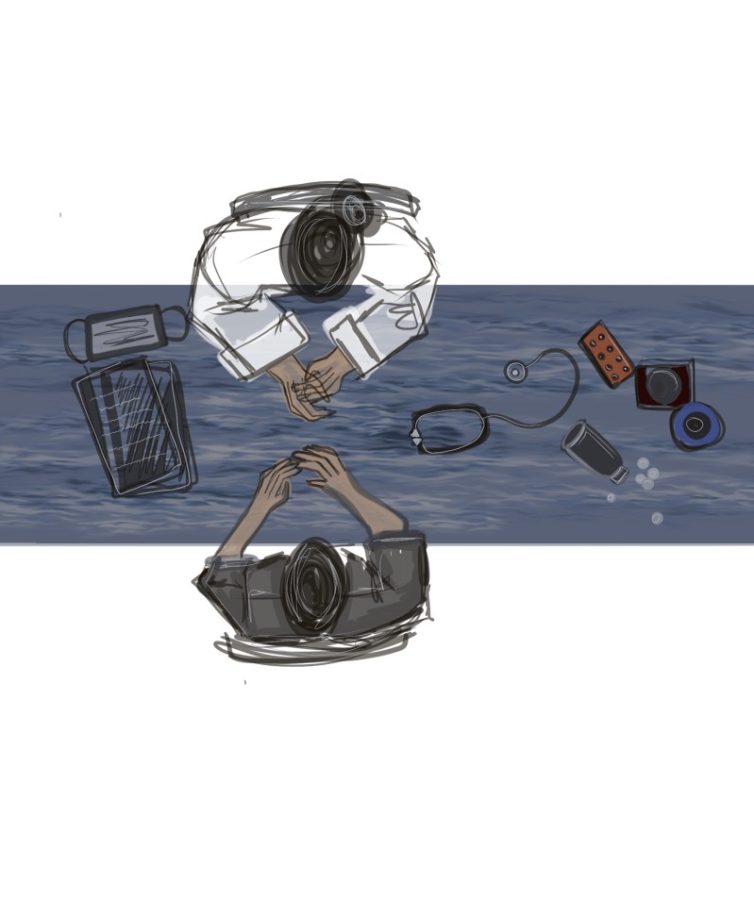OPINION: Drug Deceptions
Personal experience isn’t always reliable, especially with medication
A patient talks with their doctor about medication. The patient trusted their doctor’s decision to prescribe medication for them.
In an offshoot room in the library, a junior sits. The table shakes from their foot bouncing as their breath is bated. Their world is closing in. They can’t breathe. But a friend helps. Their kind words soothe some of the anxiety, but what they said stuck in the junior’s head.
“Whatever you do, don’t go on Zoloft, it’ll ruin your life,” they say.
According to Medical News Today, side effects of “all antidepressants, including Zoloft, may increase the risk of suicidal thoughts or actions in people under the age of 24, especially in the first few weeks of treatment or after a change in dosage.”
The most concerning thing is who this side effect applies to. Young adults. According to the National Institutes of Mental Health (NIMH), young adults are the most likely to struggle with mental health and consider medication.
An article from the NIMH states, “Young adults aged 18-25 years had the highest prevalence of SMI compared to adults aged 26-49 years and aged 50 and older.”
When dealing already with a mental health crisis, the last thing a teen wants is to experience a potentially life threatening issue. It feels like as a young adult, you’re pushed into taking potentially harmful medications. What choice do you have?
You do have a choice, to listen to your doctor. Doctors are there to help you through whatever crisis you’re going through and to give you the proper information and recommendations for you to have the best care. Doctors are morally obligated to give you informed consent.
Informed consent is a medical term explaining doctors’ obligation to inform their patients of all the facets of whatever medication they’re going on.
It’s a doctor’s job and responsibility to inform patients on whatever they’re prescribing. There is an issue with misleading patients and leaving out vital details, but it doesn’t mean we should take it into our own hands.
I’ve seen people, including myself, say what psychiatric medication is good and bad to take. We have this facade of wisdom, but only know things from personal experience. You are not smarter than a doctor.
In this day and age, we think a quick Google search is sufficient enough to override years of college when it comes to reliable information.
Telling friends and family to refuse medication prescribed by their doctor is wrong and down-right dangerous.
In the neurodivergent community, I’ve seen a lot of people talk badly about a depression medication, Zoloft, but according to The National Library of Medicine, Zoloft is a safe and effective medication.
In a study on Zoloft versus other depression medications, “Evidence favoring Sertraline over some other antidepressants for the acute phase treatment of major depression was found, either in terms of efficacy or acceptability/tolerability.”
Personal experience is a powerful thing, and I’m not against sharing it, however, it does become an issue when you share this experience with the air of authority.
However, doctors can be biased, wrong, and at times intentionally deceptive for personal gain.































